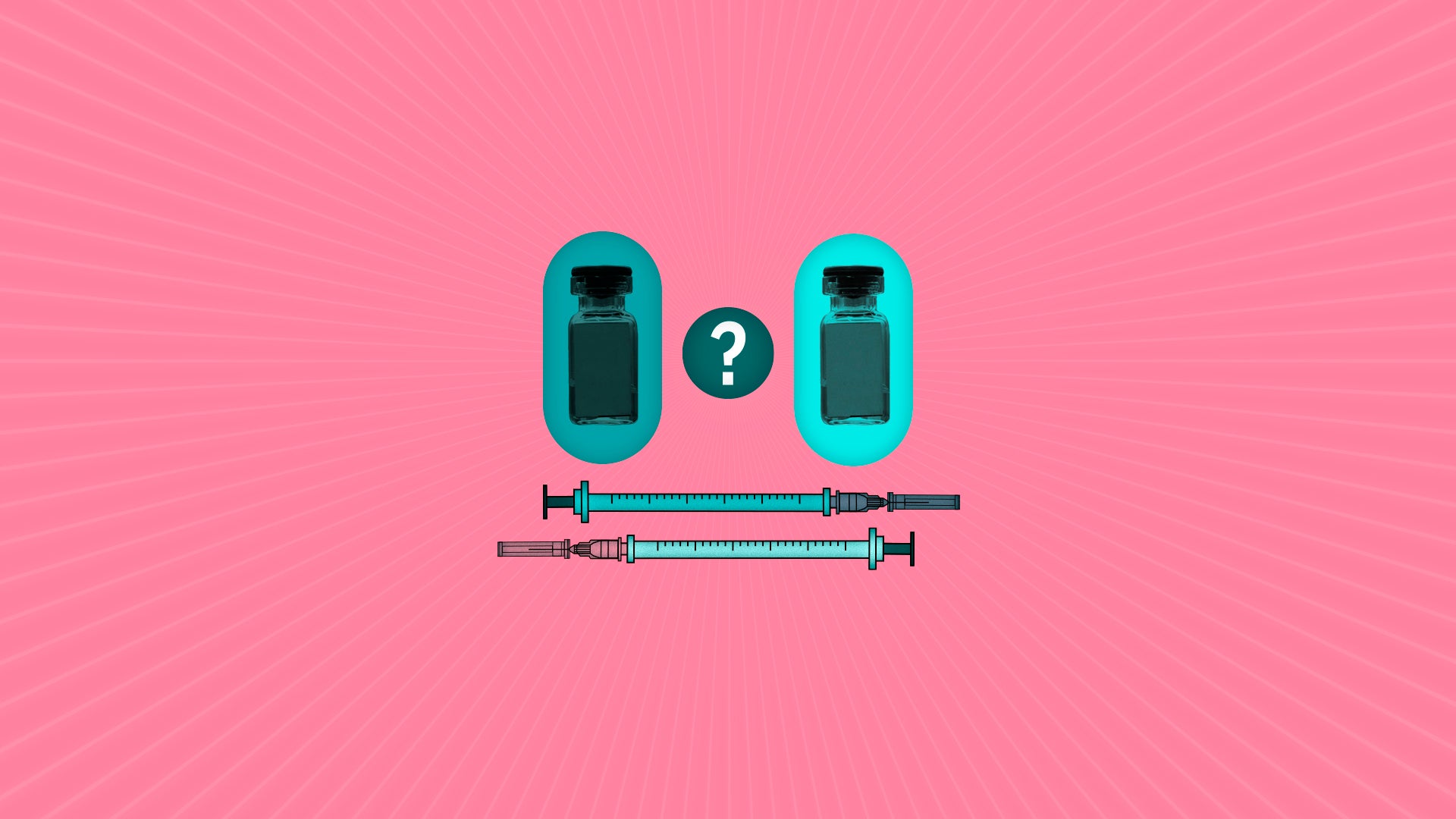Can you mix and match COVID-19 vaccines?
Experts say mixing and matching different two-dose COVID-19 vaccines is likely safe and effective, but data still needs to be collected to be sure

Your support helps us to tell the story
From reproductive rights to climate change to Big Tech, The Independent is on the ground when the story is developing. Whether it's investigating the financials of Elon Musk's pro-Trump PAC or producing our latest documentary, 'The A Word', which shines a light on the American women fighting for reproductive rights, we know how important it is to parse out the facts from the messaging.
At such a critical moment in US history, we need reporters on the ground. Your donation allows us to keep sending journalists to speak to both sides of the story.
The Independent is trusted by Americans across the entire political spectrum. And unlike many other quality news outlets, we choose not to lock Americans out of our reporting and analysis with paywalls. We believe quality journalism should be available to everyone, paid for by those who can afford it.
Your support makes all the difference.Can you mix and match two-dose COVID-19 vaccines?
It's likely safe and effective, but researchers are still gathering data to be sure.
The authorized COVID-19 shots around the world are all designed to stimulate your immune system to produce virus-fighting antibodies, though the way they do so varies, noted Dr. Kate O’Brien, director of the World Health Organization’s vaccine unit.
“Based on the basic principles of how vaccines work, we do think that the mix-and-match regimens are going to work,” she said.
Scientists at Oxford University in the United Kingdom are testing combinations of the two-dose COVID-19 vaccines made by AstraZeneca Moderna Novavax and Pfizer-BioNTech. Smaller trials are also ongoing in Spain and Germany.
“We really just need to get the evidence in each of these (vaccine) combinations,” O’Brien said.
So far, limited data suggests an AstraZeneca shot followed by the Pfizer shot is safe and effective. The combination also appears to come with a slightly higher likelihood of temporary side effects like aches and chills.
That might be because mixing and matching different types of vaccines can often produce a stronger immune response, said Lawrence Young, a virologist at the University of Warwick in the United Kingdom.
In some places, health officials already suggest mixing in select circumstances.
After the AstraZeneca vaccine was linked to extremely rare blood clots, many European countries including Germany, France and Spain recommended people who got it as a first dose get a Pfizer or Moderna shot as a second dose instead.
In Britain and Canada, officials say people should aim to get the same vaccine for their second dose if possible. If they got AstraZeneca as their first shot, they're advised to get another vaccine only if they have a history of blood clots or other conditions that might put them at higher risk of clots.
___
The AP is answering your questions about the coronavirus in this series. Submit them at: FactCheck@AP.org. Read more here:
Why do some people get side effects after COVID-19 vaccines?
Can COVID-19 vaccines affect my period?
How long does protection from COVID-19 vaccines last?